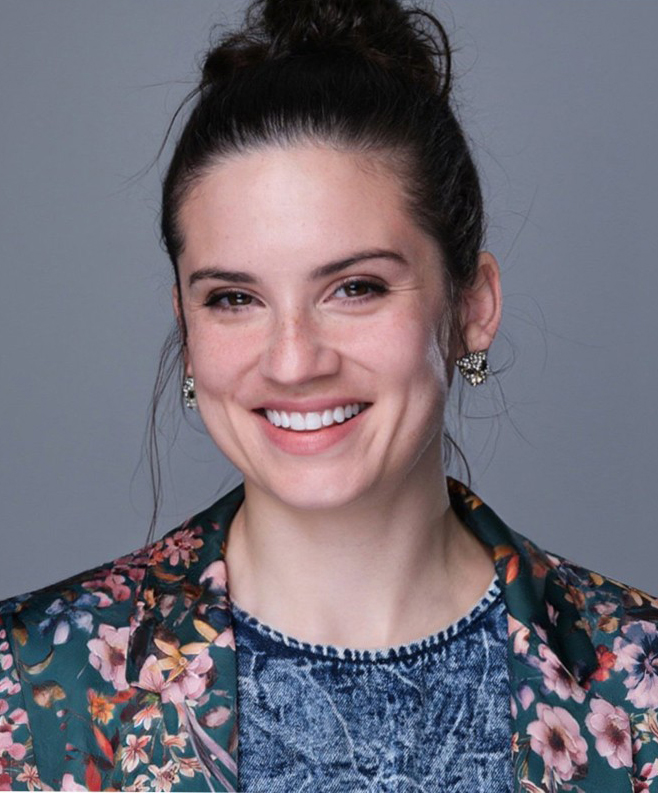Standing Out in the AI Job Market
Grainger VP and group product manager Cecelia Myers talks about important leadership skills in AI and what she looks for in potential job applicants.
It's been just one year since Cecelia Myers joined Grainger as a vice president and group product manager in the company's Product organization. Myers leads several teams that further the B2B organization's strategy to custom build technology capabilities designed to improve both customer and team member experience.
She previously spent nearly five years at CDW, where she was vice president of digital for the IT services company, leading product management, demand generation, and merchandising.

Myers saw the value of working with MSAI and MBAi students, so she helped Grainger host a capstone project this quarter.
As someone who routinely hires technologists, Myers sat down to share what she looks for in potential hires and how she thinks MSAI students can stand out in a crowded marketplace.
What are the most important leadership skills in AI right now?
The ability to translate and ground concepts is really important for any tech leader right now. The best communicators make everything feel simple, even when they aren't easy. This is especially important when you’re helping non-tech partners understand what’s possible, where they should invest next, and why they should trust you.
How do you make yourself stand out as a leader in the tech space?
I think it comes down to people who are able to understand the audience that they're speaking to, how the audience needs to hear information, and how the speaker can temper or alter the ways they communicate to meet those needs. The ability to feel and respond to the room you’re in is a skill you can hone over time and is worth the effort to develop. It’s also critical to be aware of the altitudes of who you're communicating with. Is this someone who's really senior and you're trying to give them a general understanding of how this could be useful to them? Or are you working at depth with your team and need to wrestle with technical decisions or the nuances of a user’s experience?
You mentioned grounding technical concepts. How do you do that?
When we think about deploying technology and talking about it with our teams at Grainger, we think about applying it to a team process or standard work everyone can know and understand. If you have a customer support agent and they're helping customers find products, take a use case that's really common and use it to build your first pass of working software. Putting new capabilities in motion against work they know and want to improve gives you tangible feedback that pushes you toward your next and better version.
As you do this, it’s also key not to use too much jargon and to be precise about how you use words to define ideas. This generates a shared understanding inside and outside the tech teams, which invites more people along for the ride by making them feel confident, participatory, and engaged.
What do you look for in potential hires?
If I'm looking for somebody on the technology side, I want them to be able to understand the “why” of what we’re trying to build so they can come up with the best way to do it. That means digging into value alongside the Product teams – we don’t throw work over walls here. On the Product side, I want someone who can connect the technology to practical applications for people and help them understand the ways that it can be used. When we get theoretical or abstract, we lose people fast. Good product managers balance pragmatism and possibility, leading a strategy that delivers results that also keep people imagining the future.
How can potential job candidates make themselves stand out?
If they understand what Grainger does and try to tell me specifically why they're interested, it is really helpful. It helps me get past the question of if they're generically looking for a role or if there's something where they could be a fit at Grainger.
I also want to understand what you’ve built and why you decided to do it that way. Seeing how candidates guide me through the detail and decision making of work I haven’t been a part of is an excellent way to see how they’ll break down concepts, sequence work, and build

